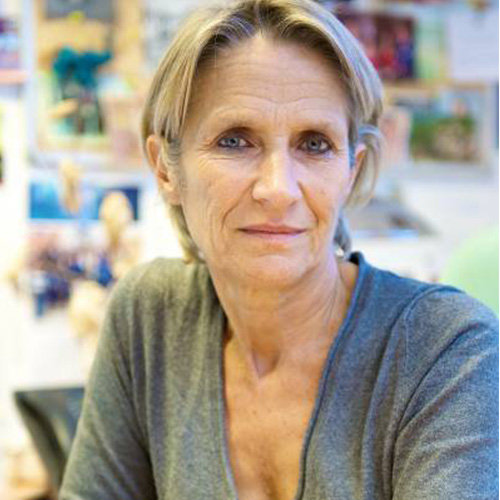
Muriel Vray
Country (Nationality)
Senegal
Grantee Title
Project- Evaluating a loop-mediated isothermal amplification assay to quantify/semi-quantify hepatitis B virus DNA levels in Senegal
Grantee Description
Muriel Vray is an epidemiologist who specialises in clinical research. She is involved in the methodology of pragmatic trials, studies of treatment strategy and evaluation of diagnostic tests. Based at the Institut Pasteur of Dakar since 2015, as head of the Unit of Epidemiology of Infectious Diseases, she collaborates with the epidemiologists of the international network of the Institut Pasteur in order to develop clinical research in the field of infectious diseases. She sits in several committees of drug evaluation and is teaches courses in the methodology of clinical trials and evaluation of diagnostic tests at PhD and MSc level. Vray has been a principal investigator in several epidemiological studies in infectious disease on AIDS, hepatitis B, malnutrition, neonatal infectious and severe diarrhoea in childhood in Africa.
Project- Evaluating a loop-mediated isothermal amplification assay to quantify/semi-quantify hepatitis B virus DNA levels in Senegal
Given the high disease burden associated with hepatitis B virus (HBV) infection, HBV now constitutes one of the health targets in the United Nation’s Sustainable Development Goals. Consequently, the WHO has developed a global strategy to eliminate HBV by 2030, and the prevention of perinatal mother-to-child transmission (PMTCT) became a core intervention in achieving this goal. Since 2009, WHO recommends administering HBV vaccine to all neonates within 24 hours of birth for the PMTCT. However, this strategy alone is unlikely to be adequate because 20-30% of women with high viral load still infect their infants despite the timely vaccination. In resource-rich countries, antenatal screening to identify women with high HBV DNA and subsequent antiviral therapy during pregnancy, a strategy similar to the HIV prevention, has become a recommendation, in addition to the universal birth dose vaccine. However, this strategy is difficult to implement in sub-Saharan Africa because a majority of African women have limited access to the HBV DNA measurement, which is expensive and requires a sophisticated laboratory environment. Here, we propose to evaluate a loop-mediated isothermal amplification assay (LAMP), a simple, robust and inexpensive nucleic acid amplification assay, to quantify/semi-quantify HBV DNA levels in Senegal. In the first step, we will validate the assay in a reference laboratory in Dakar, compared with the reference standard PCR assay. In the second step, we will validate the assay in a decentralised context at a rural health centre in Senegal. We will also evaluate the feasibility and acceptability of the use of LAMP. After the completion of this preliminary evaluation phase of the study using the funding from the Grand Challenge Africa, we plan to further assess the impact of integrating this assay in the PMTCT programme in the prevention of HBV transmission in sub-Saharan Africa.
